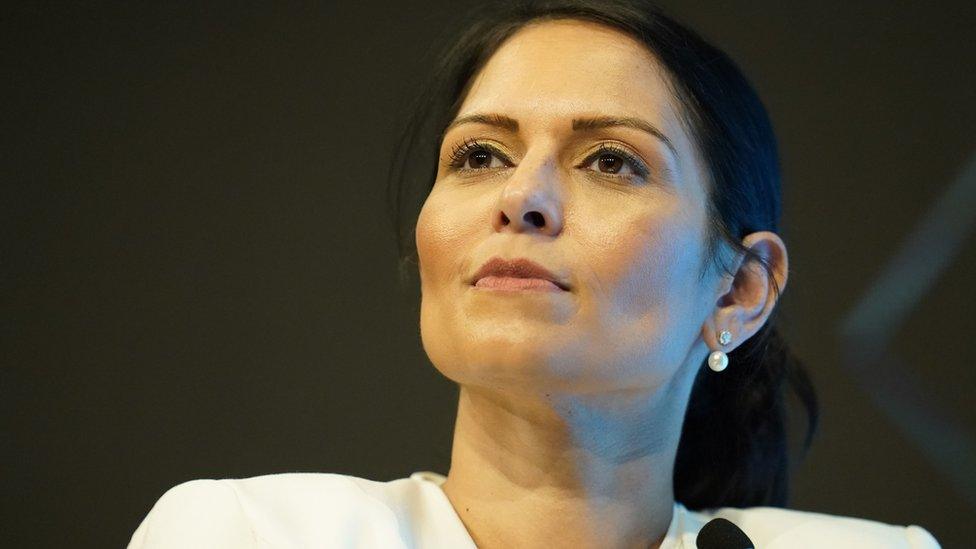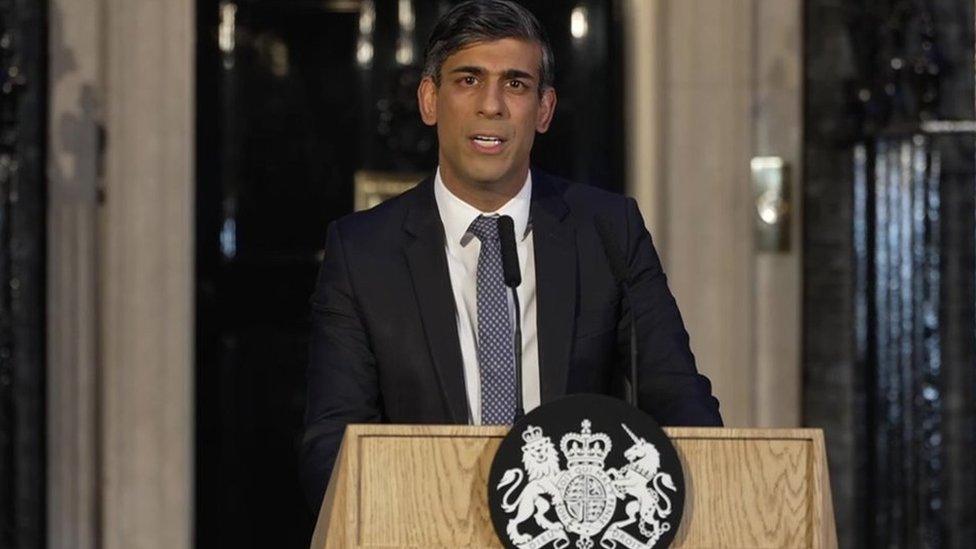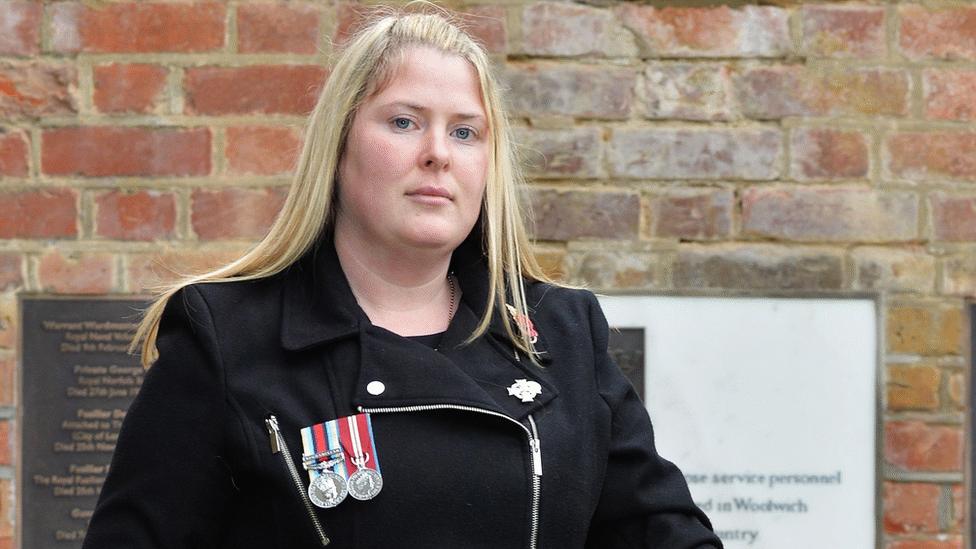Ex-home secretaries warn against politicising extremism
- Published

Priti Patel joined her two immediate predecessors as home secretary in signing an open letter urging Conservatives and Labour to work together on extremism
Three Conservative ex-home secretaries have warned the government against using extremism to score political points in a general election year.
Priti Patel, Sajid Javid and Amber Rudd said cross-party support is needed to defeat extremism, in an open letter published in the Guardian.
It comes as the government prepares to set out a new definition of extremism.
Security Minister Tom Tugendhat said the UK must "confront" a rise in Islamist and far-right extremism.
The government's new anti-extremism plan is designed to update and increase the number of organisations that are classed as "extremist" and put new limits on their activities.
Subject to cross-government sign-off, the plan will see a change in the current definition of extremism of "vocal or active opposition to British values" - established by the Counter Extremism Strategy 2015.
But critics have warned a new definition could be so broad that it could worsen community tensions and expose ministers to legal challenges.
The three ex-home secretaries signed an open letter along with half a dozen senior counter-terror and extremism experts, urging Conservatives and Labour to work together on the issue.
Others who signed the statement include Brendan Cox, the widower of the MP Jo Cox and co-founder of Survivors Against Terror; Neil Basu, the former head of counter-terrorism policing, and Richard Dannatt, the former chief of the general staff.
The open letter said: "We urge the Labour party and the Conservative party to work together to build a shared understanding of extremism and a strategy to prevent it that can stand the test of time, no matter which party wins an election.
"In the run-up to a general election, it's particularly important that that consensus is maintained and that no political party uses the issue to seek short-term tactical advantage."
Responding to the letter Mr Tugendhat told BBC Breakfast: "I think they are absolutely right; I don't think we should and I don't think we are."
The new anti-extremism plan was "to make sure all those who are threatened by extremism are protected from it and what we need to make sure those who are particularly vulnerable do not the lure of radicalisation drawing them towards it," he added.
Mr Tugendhat said the prime minister had set out "a very, very clear and, I would argue, very inclusive agenda on keeping British people safe."
"Extremism in this country sadly has risen and we must take action to confront it," he added.
Earlier this month, Prime Minister Rishi Sunak gave a speech outside Downing Street warning democracy was being targeted by extremists and there are "forces here at home trying to tear us apart".
He criticised regular mass protests and disruptive campaigns, claiming: "There is a growing consensus that mob rule is replacing democratic rule."
The Labour leader, Keir Starmer, endorsed Mr Sunak's comments, saying: "The prime minister is right to advocate unity and to condemn the unacceptable and intimidatory behaviour that we have seen recently."
Related topics
- Published1 March 2024

- Published10 March 2024
